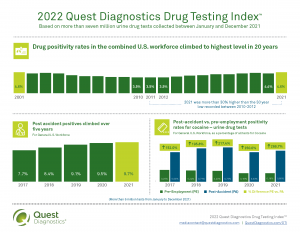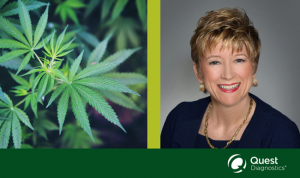 “It started with weed, then ecstasy and acid, making cocktails of all sorts of drugs… I took copious amounts of these chemicals every day for as long as two years until I had a bad trip one night and went into toxic psychosis… I became very withdrawn and thought everyone was watching me. I couldn’t walk in public places. Man! I couldn’t even drive. Yes I wanted drugs, but I realized that I could want life more.” This is a real story from Ben courtesy of the Foundation for a Drug-Free World, Ben was a polydrug user.
“It started with weed, then ecstasy and acid, making cocktails of all sorts of drugs… I took copious amounts of these chemicals every day for as long as two years until I had a bad trip one night and went into toxic psychosis… I became very withdrawn and thought everyone was watching me. I couldn’t walk in public places. Man! I couldn’t even drive. Yes I wanted drugs, but I realized that I could want life more.” This is a real story from Ben courtesy of the Foundation for a Drug-Free World, Ben was a polydrug user.
What is polydrug use?
The term “polydrug,” also referred to as “polysubstance,” is most often used by rehabilitation specialists and substance use treatment professionals. Polydrug users do not exclusively abuse one drug and instead combine multiple substances in varying amounts to enhance the physical effects of their drug of choice.
Law enforcement and health professionals have reported a frightening increase in incidental polydrug use. Recent cases include street dealers mixing man-made fentanyl with heroin to boost their profits and the drugs’ effects. Alarmingly, the mixture of the two drugs is helping drive our nation’s opioid epidemic. According to The Washington Post, fentanyl is 50 times stronger than heroin. In fact, in 24 of the nation’s largest cities, and the counties that surround the, fentanyl-related overdose deaths increased nearly 600% from 2014 to 2018.
Recovery from substance use disorders through rehabilitation is possible. However, polydrug use makes recovery more challenging because an individual like Ben is heavily dependent on more than one drug. Communities, physicians, addiction specialists, families, and employers continuously work to increase awareness to curb drug use and its potential fatal consequences.
Employers who are concerned about drug abuse can establish a multi-layered, drug-free workplace program that includes treatment and support services. As an employer, there is a need to maintain a healthy and productive workforce starting with the recruitment process.
Stay informed about substance abuse-related topics. You can subscribe to our blog or sign up for our monthly newsletter for our latest insights and resources.
If you or someone you know is unable to stop using drugs or alcohol, seek a referral from your primary care physician or locate an addiction specialist from the American Society of Addiction Medicine.
Learn more about how your company can build an effective drug testing program – visit our website.




















What is polydrug use?
The term “polydrug,” also referred to as “polysubstance,” is most often used by rehabilitation specialists and substance use treatment professionals. Polydrug users do not exclusively abuse one drug and instead combine multiple substances in varying amounts to enhance the physical effects of their drug of choice.
Law enforcement and health professionals have reported a frightening increase in incidental polydrug use. Recent cases include street dealers mixing man-made fentanyl with heroin to boost their profits and the drugs’ effects. Alarmingly, the mixture of the two drugs is helping drive our nation’s opioid epidemic. According to The Washington Post, fentanyl is 50 times stronger than heroin. In fact, in 24 of the nation’s largest cities, and the counties that surround the, fentanyl-related overdose deaths increased nearly 600% from 2014 to 2018.
Recovery from substance use disorders through rehabilitation is possible. However, polydrug use makes recovery more challenging because an individual like Ben is heavily dependent on more than one drug. Communities, physicians, addiction specialists, families, and employers continuously work to increase awareness to curb drug use and its potential fatal consequences.
Employers who are concerned about drug abuse can establish a multi-layered, drug-free workplace program that includes treatment and support services. As an employer, there is a need to maintain a healthy and productive workforce starting with the recruitment process.
Stay informed about substance abuse-related topics. You can subscribe to our blog or sign up for our monthly newsletter for our latest insights and resources.
If you or someone you know is unable to stop using drugs or alcohol, seek a referral from your primary care physician or locate an addiction specialist from the American Society of Addiction Medicine.
Learn more about how your company can build an effective drug testing program – visit our website.